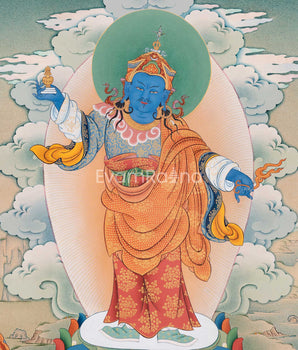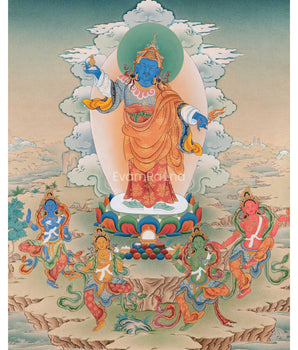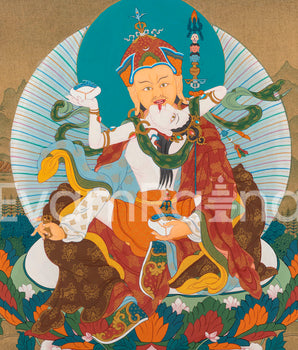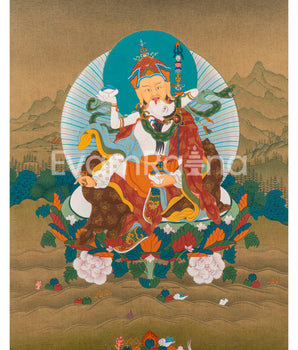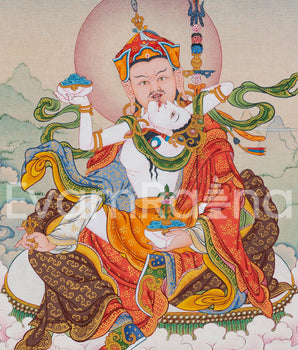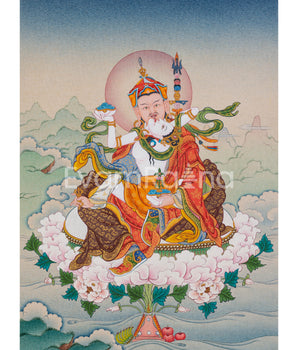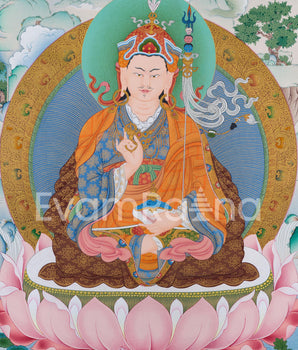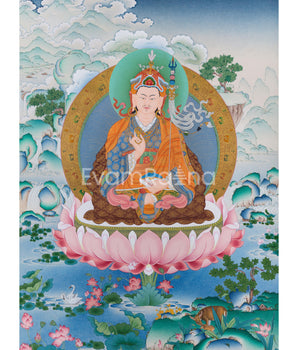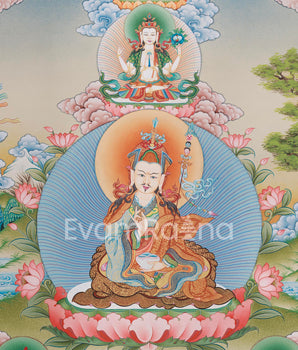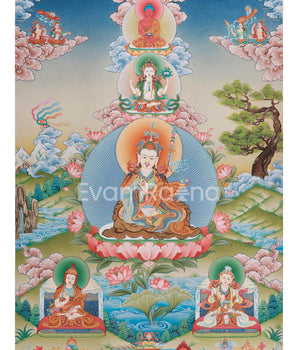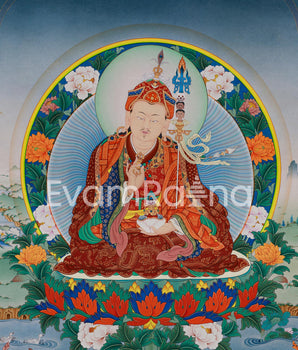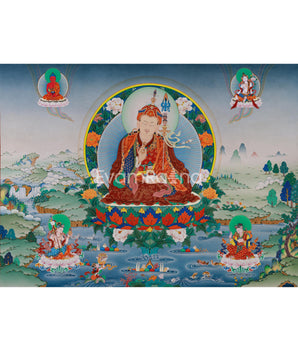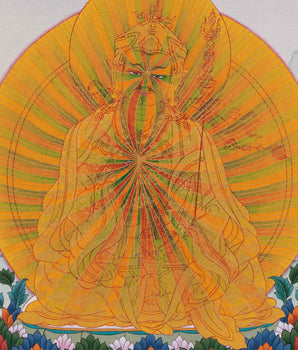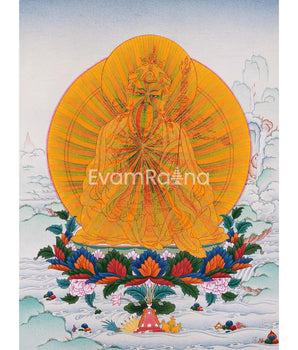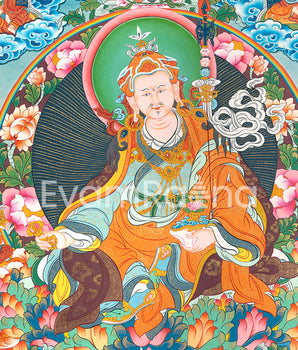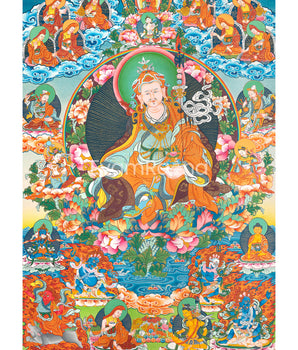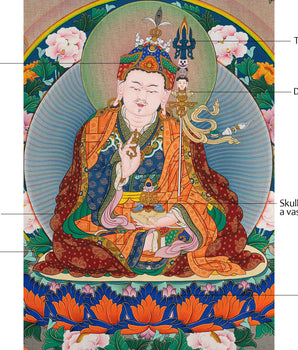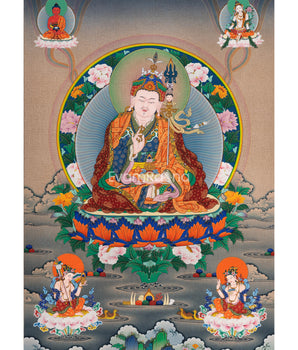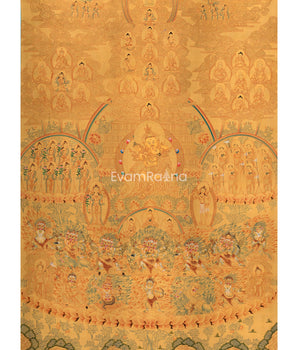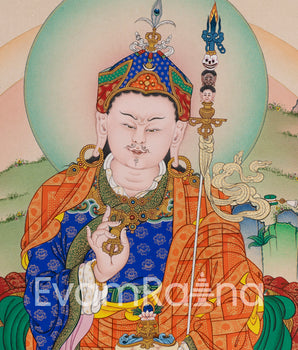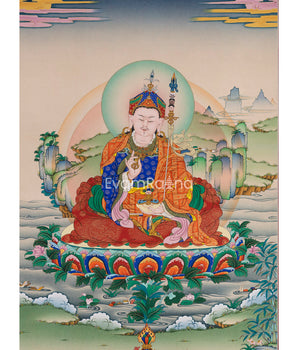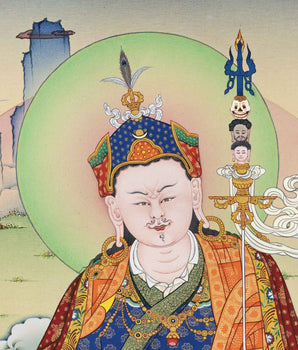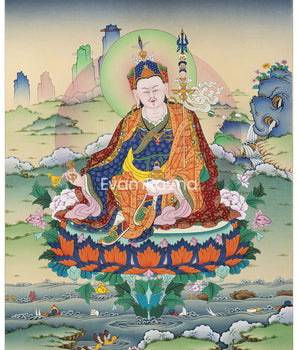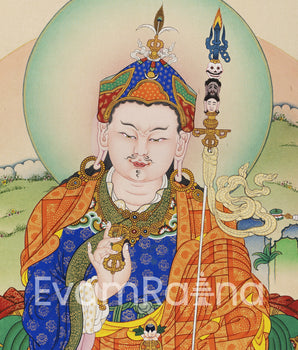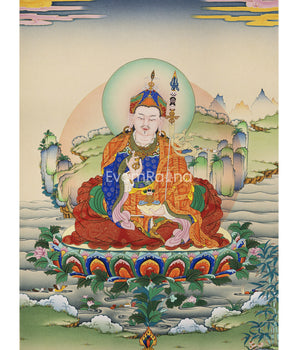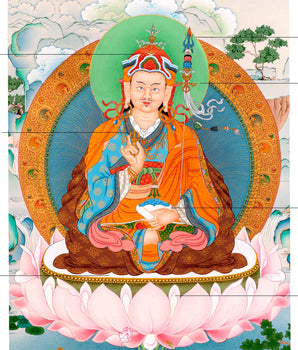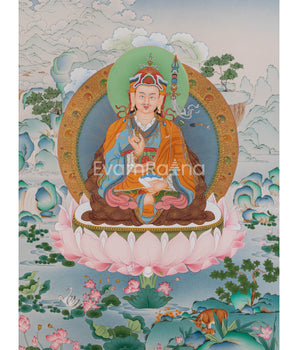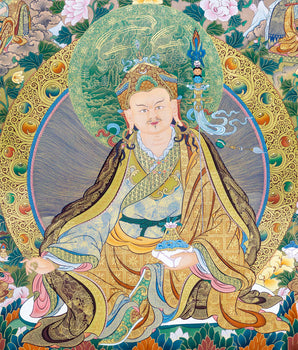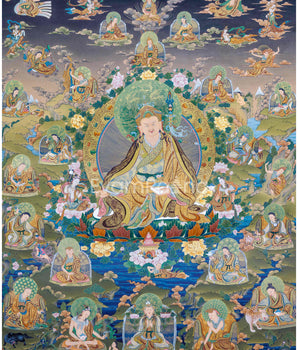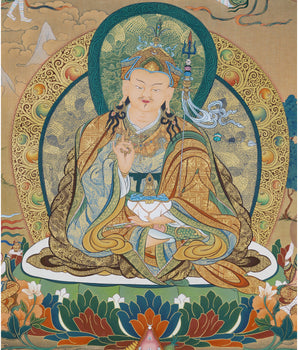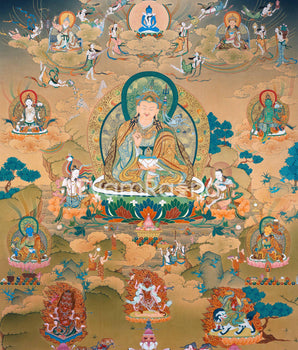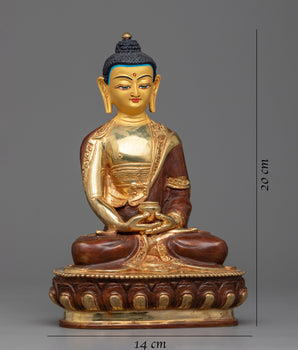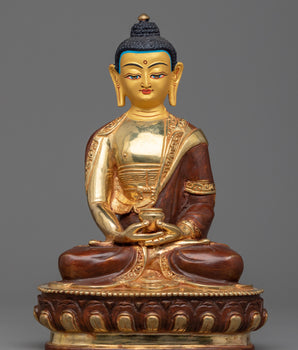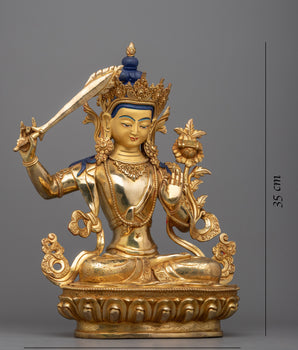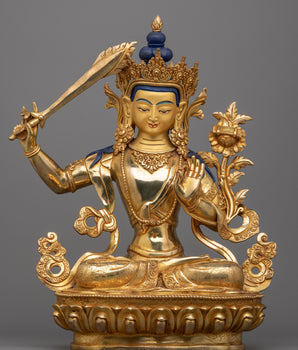Guru Rinpoche Prints
Guru Rinpoche: The Lotus-Born Master and the Second Buddha
Background and Significance
Guru Rinpoche, known by his Tibetan name Padmasambhava, or "Lotus-Born," occupies a central role in Tibetan Buddhism, particularly in the Vajrayana tradition. His miraculous birth from a lotus in Dhanakosha Lake weaves a captivating narrative rich with teachings, miracles, and legends.
Referred to as the "Second Buddha," Guru Rinpoche introduced Buddhism to Tibet in the 8th century. At the invitation of Tibetan King Trisong Detsen, he played a pivotal role in establishing Samye, Tibet's first Buddhist monastery. He also tamed local spirits and deities, transforming them into protectors of the Dharma, harmonizing Buddhism with Tibet's traditional spiritual beliefs.
Attributes and Iconography
Depictions of Guru Rinpoche are adorned with symbols representing his deeds and teachings. He is often shown seated, wearing a lotus headdress and regal attire, symbolizing his miraculous lotus birth and mastery over both Samsara and Nirvana.
His left hand cradles a skull cup filled with wisdom nectar and a vase of immortality, while his right hand holds a vajra, signifying the unwavering nature of an enlightened mind. A khatvanga staff draped over his shoulder represents his consort, Mandarava, and his dominion over life and death. His compassionate yet penetrating gaze reflects his unwavering love for all sentient beings and his ability to see beyond the veils of ignorance.
Associated Stories and Legacy
Guru Rinpoche's life is filled with profound teachings and extraordinary narratives. His triumph over the local deity Pehar, elevating him as the primary protector of the Dharma in Tibet, is one of the most renowned tales. Another account recounts his retreat with his consort Mandarava in the Maratika cave, where they engaged in longevity practices and attained immortality.
As long as Tertons (treasure revealers) continue to uncover and propagate Guru Rinpoche's teachings, especially the terma (hidden treasures), his wisdom will remain timeless and accessible. His impact extends far beyond the construction of monasteries and educational endeavors, as he is revered as a Buddha and a guiding force leading individuals on the path to enlightenment within Tibetan Buddhism.
Padmasambhava left an indelible mark on the spiritual landscape of Tibet and the Himalayan region. He skillfully transformed obstacles into opportunities, turned adversaries into allies, and ensured that the light of the Dharma shone brightly in the Land of Snows as the Lotus-Born Master. His life and teachings inspire many, guiding countless individuals toward compassion and enlightenment.
Your cart is currently empty.
Start Shopping







